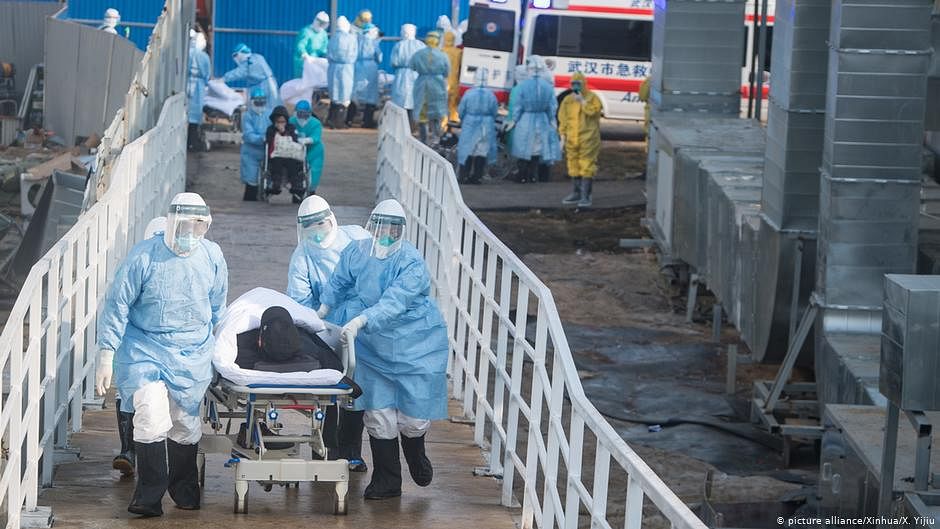Over 28 million more years of life were lost than expected in 2020 in 31 upper-middle and high-income countries finds a study published by The BMJ today.
Except for Taiwan, New Zealand, Denmark, Iceland, Norway, and South Korea, all other countries examined had more premature deaths than expected in 2020, with a higher rate in men than women. The highest rates of excess premature deaths were in Russia, Bulgaria, Lithuania, and the US.
Understanding the full impact of the covid-19 pandemic requires not only counting excess deaths (difference between observed and expected numbers of deaths from all causes), but also analysing how premature those deaths are.
Years of life lost (YLL) measures both the number of deaths and the age at which it occurs, making it a more detailed assessment of covid-19’s impact on populations.
Using this measure, an international team of researchers, led by Dr Nazrul Islam from the Nuffield Department of Population Health, University of Oxford, set out to estimate the changes in life expectancy and excess years of life lost from all causes in 2020.
They compared the observed life expectancy and years of life lost in 2020 with those that would be expected based on historical trends in 2005-19 in 37 upper-middle and high-income countries.
Between 2005 and 2019, life expectancy at birth increased in both men and women in all the countries studied.
In 2020, there was a decline in life expectancy in both men and women in all countries except New Zealand, Taiwan, and Norway, where there was a gain in life expectancy. No evidence was found of a change in life expectancy in Denmark, Iceland, and South Korea.
The highest decline in life expectancy (in years) was in Russia (−2.33 in men and −2.14 in women), the US (−2.27 in men and −1.61 in women), Bulgaria (−1.96 in men and −1.37 in women), Lithuania (−1.83 in men and −1.21 in women), Chile (−1.64 in men), and Spain (−1.11 in women).
Years of life lost declined in most countries in both men and women between 2005 and 2019, except Canada, Greece, Scotland, Taiwan, and the US.
In 2020, years of life lost were higher than expected in all countries except Taiwan and New Zealand, where there was a reduction in years of life lost, and Iceland, South Korea, Denmark, and Norway, where there was no evidence of a change in years of life lost.
In the remaining 31 countries, more than 222 million years of life were lost in 2020, which is 28.1 million more than expected (17.3 million in men and 10.8 million in women).
The highest excess years of life lost (per 100,000) were in Russia (7,020 in men and 4,760 in women), Bulgaria (7,260 in men and 3,730 in women), Lithuania (5,430 in men and 2,640 in women), and the US (4,350 in men and 2,430 in women).
Overall, excess years of life lost to the covid-19 pandemic in 2020 were more than five times higher (2,510 per 100,000) than those associated with the seasonal influenza epidemic in 2015 (458 per 100,000).
The excess years of life lost were relatively low in people younger than 65 years, except in Russia, Bulgaria, Lithuania, and the US where the excess years of life lost were more than 2,000 per 100,000.
The researchers acknowledge some limitations. For example, they did not include most countries from Asia, Africa, and Latin America due to a lack of data, and were unable to take account of other critically important factors, such as socioeconomic status, regional disparities, and race or ethnicity.
However, the findings are largely in line with previous studies, and their use of authoritative national mortality data, together with a validated analytical approach, suggests that the results are robust.
“Our findings of a comparable or lower than expected YLL in Taiwan, New Zealand, Denmark, Iceland, Norway, and South Korea underscore the importance of successful viral suppression and elimination policies, including targeted and population-based public health policy interventions,” they write.
“As many of the effects of the pandemic might take a longer time frame to have a measurable effect on human lives, continuous and timely monitoring of excess YLL would help identify the sources of excess mortality and excess YLL in population subgroups,” they conclude.

 Rate of excess premature deaths higher in men than women; findings shed more light on the full impact of the pandemic
Rate of excess premature deaths higher in men than women; findings shed more light on the full impact of the pandemic



































